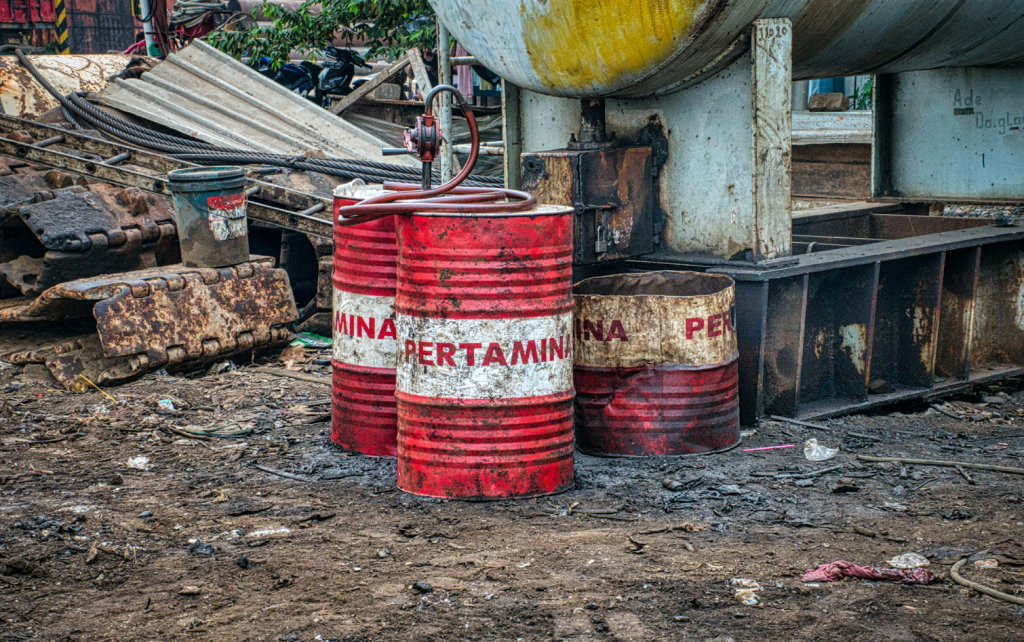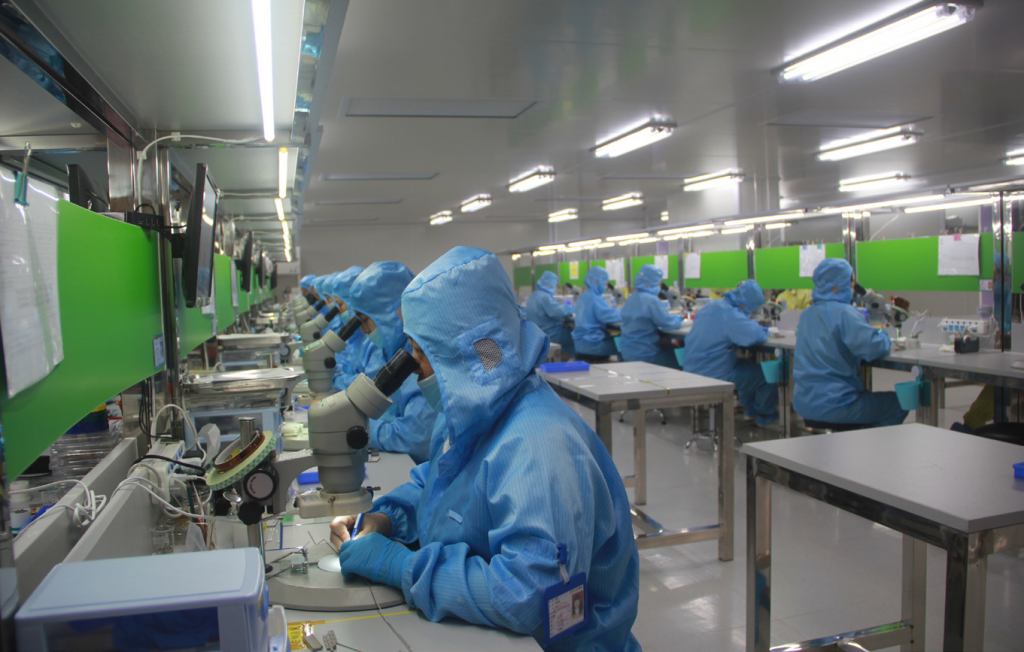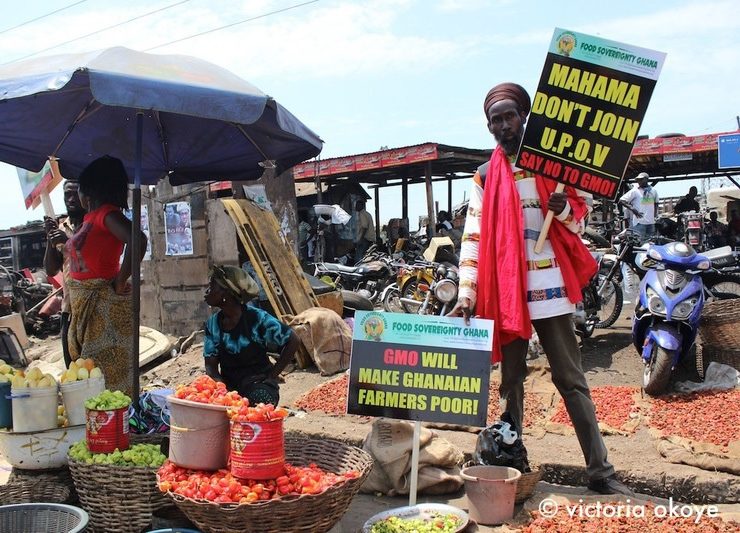When Companies Know What’s Best to Do

Chioma Phillips is the Editor of Msingi Afrika Magazine and…
But Don’t Do It.
As men and women continue to plow the course of history, on their terms, it is helpful – actually it is crucial – that we stop and review the damage that has been left in their wake, lest we celebrate people and companies as icons yet they are actually those who created devastating harm. For, to celebrate the achievements without looking at the collateral damage these ‘achievements’ leave in their wake will cause us to elevate evil, instead of eliminating it outright. And, for Afrika, this will cause an imbalance in perspective, as we seek ways in which to build a future that is genuinely great.
Many a time nations, companies, industries and individuals from outside of Afrika are held up as examples that Afrika should consider emulating. This is all part of nudging the continent to follow a particular direction, or a specific script, towards a pre-defined shining goal of success. But to what end? What is behind all that shine and dazzle? To what end does one pursue this scripted ambition, when the outcomes that the world regularly gets are pain, suffering and even large numbers of dead?
Let us look at a few cases, which you know are nothing but the scratching of the surface of corporate evils, and the greed and selfishness of mankind:
The Chisso Corporation
“The Chisso Corporation was once a fertilizer and carbicle company, and gradually advanced to a petrochemical and plastic-maker company. From 1932 to 1968, Chisso Corporation, a company located in Kumamoto Japan, dumped an estimated 27 tons of mercury compounds into Minamata Bay. When Chisso Corporation dumped this massive amount of mercury into the bay, thousands of people whose normal diet included fish from the bay, unexpectedly developed symptoms of methyl mercury poisoning. The illness became known as the “Minamata Disease”.
In 1907 the villagers of Minamata convinced the founder of Chisso Corporation to build a factory in their town, hoping to benefit from the wealth of industrialization. The owner, Jun Noguchi agreed to the development, but used the people from Minamata as simple factory workers. The more elite positions, such as engineers and managers were “imported” as he termed it, from the finest universities, like Tokyo University. By 1925, the Chisso Corporation was dumping waste into Minamata Bay which had the side effect of destroying the fishing areas. The theory behind Noguchi’s policy was to pay off the Minamata fisherman in exchange for damaging their fishing environment. According to Eugene Smith’s interview of the people who lived in Minamata, the company believed that it was much cheaper to pay off the few people who were opposed to the dumping, rather than implement an environmentally safe technique of waste removal. Therefore, since the villagers accepted this practice through compensation of money, and the government was behind the industry, the entire process appeared ethical. Chisso Corporation’s sales increased dramatically, partly due to Chisso being the only manufacturer of a primary chemical called D.O.P, a plasticizer (diotyl phthalate). Having a monopoly on the chemical was a distinct advantage. Since Chisso Corporation was the main industry in the small town, the town’s growth period from 1952 to 1960 paralleled Chisso’s progress.” (Excerpted from: http://pcwww.liv.ac.uk/aquabiol/mercury/minamata/minamatanotes_long.htm)
“As a result of this contamination, 2,265 individuals in the area were inflicted with what is now known as Minamata disease. 1,784 of those victims died as a result of the poisoning and/or the disease. Those who were afflicted with the disease developed skeletomuscular deformities and lost the ability to perform motor functions such as walking. Many also lost significant amounts of vision, as well as hearing and speech capabilities. Severe cases presented with insanity, paralysis, coma and then death within weeks of the onset of symptoms.
As of March 2001, over 10,000 individuals had received financial remuneration from Chisso to compensate them for the harm caused by the chemical release. By 2004, Chisso Corporation had paid $86 million in compensation, and, in the same year, the company was ordered to clean up its contamination.[5] However, the incident remains controversial for not only the poisoning itself but also for the tactics that the company used to suppress the negative aftermath.” (Sourced from: https://en.wikipedia.org/wiki/Chisso)

Pfizer Inc.
“American pharmaceutical giant Pfizer Inc. and its subsidiary Pharmacia & Upjohn Company Inc. (hereinafter together “Pfizer”) have agreed to pay $2.3 billion, the largest health care fraud settlement in the history of the Department of Justice, to resolve criminal and civil liability arising from the illegal promotion of certain pharmaceutical products, the Justice Department announced today.
Pharmacia & Upjohn Company has agreed to plead guilty to a felony violation of the Food, Drug and Cosmetic Act for misbranding Bextra with the intent to defraud or mislead. Bextra is an anti-inflammatory drug that Pfizer pulled from the market in 2005. Under the provisions of the Food, Drug and Cosmetic Act, a company must specify the intended uses of a product in its new drug application to FDA. Once approved, the drug may not be marketed or promoted for so-called “off-label” uses – i.e., any use not specified in an application and approved by FDA. Pfizer promoted the sale of Bextra for several uses and dosages that the FDA specifically declined to approve due to safety concerns. The company will pay a criminal fine of $1.195 billion, the largest criminal fine ever imposed in the United States for any matter. Pharmacia & Upjohn will also forfeit $105 million, for a total criminal resolution of $1.3 billion.
In addition, Pfizer has agreed to pay $1 billion to resolve allegations under the civil False Claims Act that the company illegally promoted four drugs – Bextra; Geodon, an anti-psychotic drug; Zyvox, an antibiotic; and Lyrica, an anti-epileptic drug – and caused false claims to be submitted to government health care programs for uses that were not medically accepted indications and therefore not covered by those programs. The civil settlement also resolves allegations that Pfizer paid kickbacks to health care providers to induce them to prescribe these, as well as other, drugs. The federal share of the civil settlement is $668,514,830 and the state Medicaid share of the civil settlement is $331,485,170. This is the largest civil fraud settlement in history against a pharmaceutical company.” (Extract from: https://www.justice.gov/opa/pr/justice-department-announces-largest-health-care-fraud-settlement-its-history, 2009)

The 2007-8 Financial Crisis
“The 2007-2009 financial crisis began years earlier with cheap credit and lax lending standards that fueled a housing bubble.
When the bubble burst, financial institutions were left holding trillions of dollars worth of near-worthless investments in subprime mortgages.
Millions of American homeowners found themselves owing more on their mortgages than their homes were worth.
The Great Recession that followed cost many their jobs, their savings, or their homes.
The turnaround began in early 2009 after the passage of the infamous Wall Street bailout kept the banks operating and slowly restarted the economy.
Who Is to Blame for the Great Recession?
Many economists place the greatest part of the blame on lax mortgage lending policies that allowed many consumers to borrow far more than they could afford. But there’s plenty of blame to go around, including:
The predatory lenders who marketed homeownership to people who could not possibly pay back the mortgages they were offered.
The investment gurus who bought those bad mortgages and rolled them into bundles for resale to investors.
The agencies who gave those mortgage bundles top investment ratings, making them appear to be safe.
The investors who failed to check the ratings, or simply took care to unload the bundles to other investors before they blew up.
Which Banks Failed in 2008?
The total number of bank failures linked to the financial crisis cannot be revealed without first reporting this: No depositor in an American bank lost a penny to a bank failure.
That said, more than 500 banks failed between 2008 and 2015, compared to a total of 25 in the preceding seven years, according to the Federal Reserve of Cleveland.16 Most were small regional banks, and all were acquired by other banks, along with their depositors’ accounts.
The biggest failures were not banks in the traditional Main Street sense but investment banks that catered to institutional investors. These notably included Lehman Brothers and Bear Stearns. Lehman Brothers was denied a government bailout and shut its doors. JPMorgan Chase bought the ruins of Bear Stearns on the cheap.
As for the biggest of the big banks, including JPMorgan Chase, Goldman Sachs, Bank of America, and Morgan Stanley, all were, famously, “too big to fail.” They took the bailout money, repaid it to the government, and emerged bigger than ever after the recession.” (From: https://www.investopedia.com/articles/economics/09/financial-crisis-review.asp)
“The Bank of America… paid roughly £11 billion in damages for its role in the 2008 subprime mortgage crisis and financial crash.” (Source: https://www.scotsman.com/news/crime/who-paid-the-largest-criminal-fine-in-history-and-why-3376815)
What do each of these situations have in common?
Personal choice. Individuals decided on an endeavor and committed to it, or groups of people came together to cooperate and build towards a common goal. And they did.
Personal motivation. Each one saw a potential benefit in the outcome of their chosen activity from which they hoped to gain and that is what kept them committed to pursuing the outcome. Even when they saw things begin to go wrong.
Consequences. Out of each of these situations – and others like them – there were costs to be paid. Either financial costs or lives lost or health, or livelihoods, or devastating economic or environmental costs. Nothing was left untouched. Worse yet, the moral fabric of society was damaged by the continuing endorsement of the existence of these companies, their products and their financial gain. A choice was made not to destroy them utterly, despite the fact that they were so obviously corrupt and willing to corrupt society, but to retain them in some shape or form. But why would society do that?
When we speak of Ubuntu: “I am because we are”, we must keep in mind the aspect of personal responsibility towards others for choices that we make, or else we miss the point. Each of these three situations are sufficient in themselves to ensure that all manufacturing, all marketing and sales initiatives, all products (financial or otherwise), all financial activities worldwide, all government policy making are reviewed to the greatest depths and breadths possible, in order to ensure that nothing like this ever happens again. But, since we know that the world is still heavily polluted in terms of mindset and perspective, and we know that companies still lie about what the benefits of their products are, that financial institutions are more interested in profit than ever before, and that governments are complicit in all these things, then we know that valuable learnings are not being applied as we move forward from these crises.
Can we genuinely call that progress and advancement?
But even if the world will not learn, should Afrika continue follow their ways of persistent and deliberate blindness and culpability? No. Rather, Afrika should choose pathways that make sense for longevity in all spheres using cases such as the three above, and the hundreds or thousands of others that have taken place around the world, and on the continent to chart a safe course forward. We sit, as a continent, in a position that offers us the perfect vantage point to be able to view the cause-and-effect relationship between global policy-making and negative outcome. We can trace from colonialism onwards the consequences of choices made by the so-called developed countries and ‘superpowers’ by looking at the environment, by looking at their own social condition which is marked by poverty, increased drug use and imbalances to see that what they claim as utopia is simply dystopia.
We can look within at our own state from following the patterns and paths that they insist make for advancement and see their negative impacts on our lives. We know that issues of cancers being caused by toxic chemicals which are dumped in Afrika, or uranium powder contaminating the environment should not be a part of our reality, as is currently the case in many parts of Afrika. Cases of individuals mining gold using mercury and no protective gear whatsoever should be unheard of, yet sadly are not.
Deception in the area of medication that is being used in Afrika should be a thing of the past, especially considering how it has been used to harm us already, so far. Indeed, if any place on earth needs to be most diligent, deliberate and prudent in all of its dealings, it should be this big, beautiful, beloved continent of ours. And it should be a priority of every single policymaker in every single country across the continent. Not like, as we have seen, people complaining that they are going to lose money if we eradicate toxic cancer-causing agrochemicals from use!!!! We have placed money on the same level as human life?! Shame on us for being so greedy, selfish and heartless that we would put money ahead of the welfare and well-being of our people.
Are we really that mindless and insane?
I often look at the goings on in the world and I really wonder what is going on with the heart of man that he cannot see how bad it is? Already the official deaths from the Covid vaccine in the US, UK and Europe number in their high tens of thousands. That’s reported deaths. People gone. From the vaccine not the disease. Not to mention the other devastating injuries which you can find some information on from realnotrare.com. Yet the world is still persisting and in many cases insisting that this should be made mandatory when there are remedies that have been spoken of since before the vaccines were pushed down everyone’s throats. People were silenced who had answers that did not involve untested, experimental injections. And we look at that and we cannot see that there is a problem somewhere? Nations are being coerced and bribed into forcing their citizens to accept this jab and they are willingly doing it and we cannot see that this is a problem? And we are not concerned about the direction that the world is traveling in?

As you can see, from just three examples of companies in this article, it is not like we have the perfect track record. Some humility would be welcome for a change, admitting that we do not know everything and that we have, in the past (and present) caused harm to one another. Perhaps that would be enough to halt the mindless pursuit of money and return us to a place where we are actually considerate of each other again.
Consider that when companies know what they ought to be doing, and don’t do it, the people who suffer are their customers. When governments know what they ought to be doing, and don’t do it, we suffer yet again. But, when the people know what they ought to be doing, and don’t do it… indeed, all hope is lost, for, after all, the people are the society, the government and the companies.
What's Your Reaction?
Chioma Phillips is the Editor of Msingi Afrika Magazine and the host of Msingi Afrika Television. Her hope is to see the Truth shared, with all who will listen, for the transformation of the people and the continent of Afrika - and the world. She believes passionately in the critical role that Afrika and Afrikans have to play on earth right now and hopes to ignite the spark that will cause them to see and believe who they are, so that they can live out their Truest lives for the remainder of their days.

















